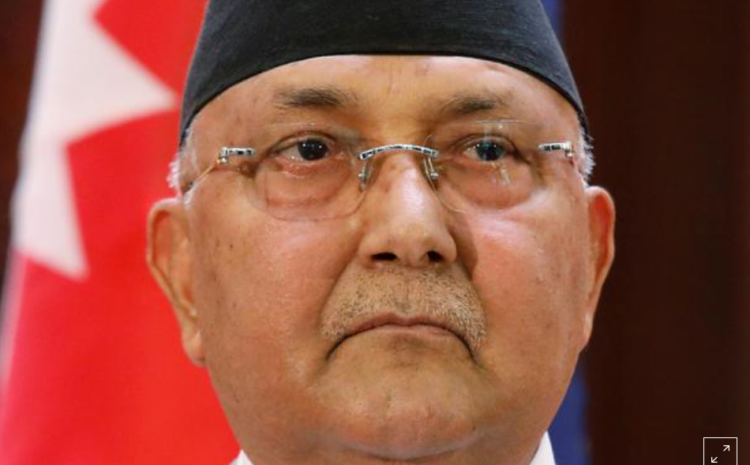The move plunges the Himalayan country, which has seen revolving-door governance since street protests restored multi-party democracy in 1990, into political turmoil as it battles the coronavirus pandemic.
Seven ministers stepped down, including the tourism head, citing Oli’s decision to go against the “popular mandate” given to them in the 2017 general election. Protesters burned effigies of him in various parts of the capital Kathmandu.
President Bidhya Devi Bhandari’s office said in a statement that the April 30 and May 10 voting dates were recommended by Oli’s cabinet following an emergency meeting.
Oli, 68, pushed for a fresh mandate after his Nepal Communist Party (NCP) accused him of sidelining his party in government decisions and appointments. He had led an alliance with former Maoist rebels to a landslide win in the last vote.
“The prime minister has lost the majority in the parliamentary party, central committee and the secretariat of the party,” said Bishnu Rijal, an NCP central committee member.
“Instead of seeking a compromise within the party, he chose to dissolve parliament.”
Oli’s decision came after some lawmakers from his party registered a vote of no confidence against him in the 275-member lower house of parliament, NCP lawmaker Pampha Bhusal said.
Sandwiched between China and India, politics in Nepal is also influenced by the priorities of its giant neighbours. India has been pushing back against Beijing’s growing clout in a country that New Delhi considers its own backyard.
Oli aide Rajan Bhattarai said the prime minister had acted in response to the backlash from his party, which had also asked him to consider quitting as its president.
Politicians and social media users said the ruling party should have tried out other political combinations to run the country instead of calling an untimely election when its tourism-dependent economy has been battered by the pandemic.
Nepal’s 2015 charter does not give the prime minister the prerogative to dissolve parliament without exhausting alternatives, constitutional expert Bipin Adhikari said.
“It is unconstitutional at the first sight,” he said, adding that the decision could be challenged in the Supreme Court, which may take a couple of weeks to decide its legality.
After his 2017 win, Oli had vowed to ensure political stability, fight corruption and poverty but has made little progress, especially since the pandemic.
Coronavirus infections have reached 253,772, with 1,788 deaths, in the country of 30 million people.
Reporting by Gopal Sharma; additional reporting Navesh Chitrakar; Writing by Krishna N. Das; Editing by William Mallard and Louise Heavens
Our Standards: The Thomson Reuters Trust Principles

